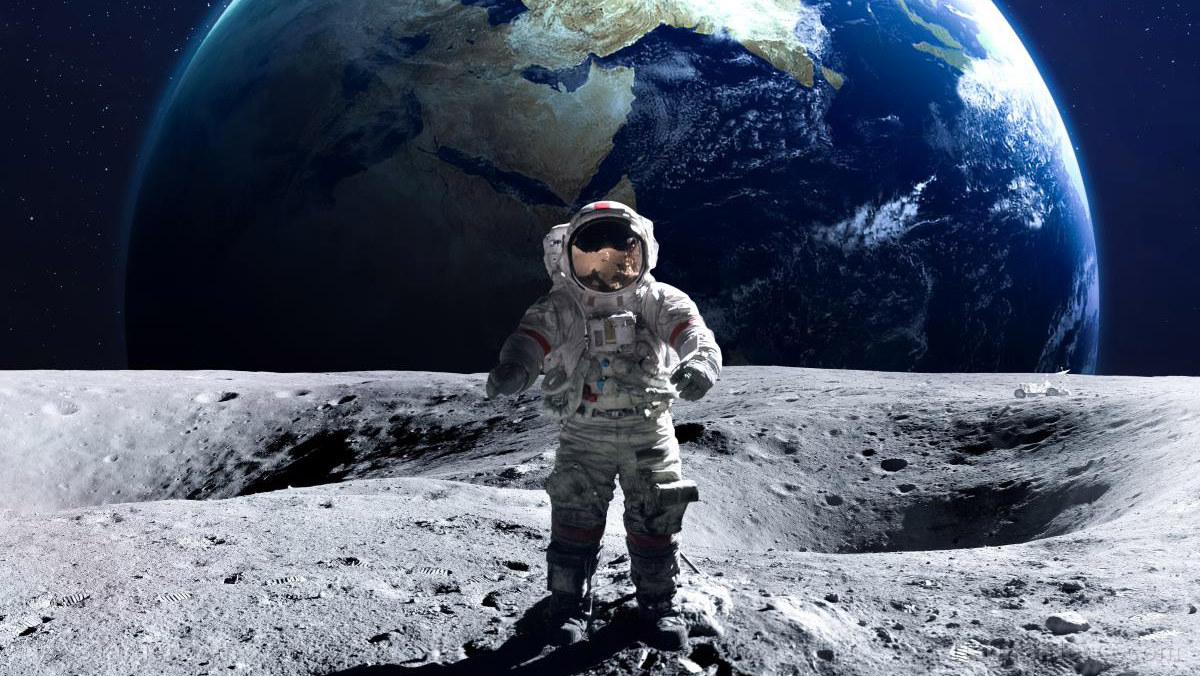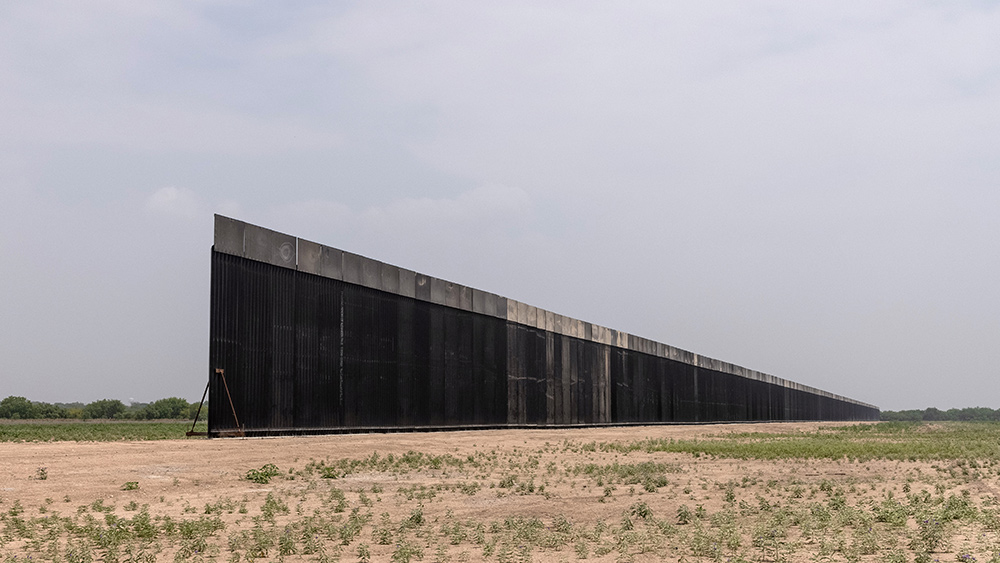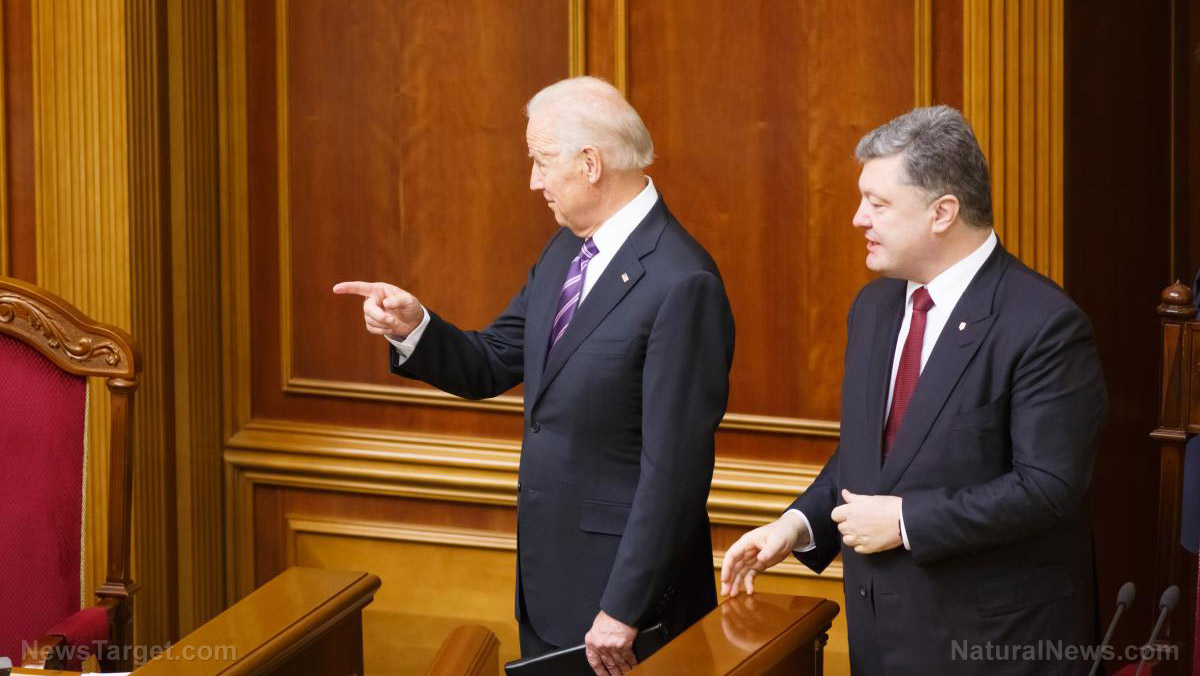Space race? Russia to partner with China to build the first lunar base after rejecting US space deal
08/01/2022 / By Virgilio Marin

Russia threw down the gauntlet to the United States after announcing plans to collaborate with China to build the first lunar base. An Order of the Government of Russia detailing the plan was published in February of 2021.
“Roscosmos has completed domestic proceedings to harmonize the Memorandum of Understanding between the Government of the Russian Federation and the Government of People’s Republic of China on cooperation to create the International Lunar Research Station,” Roscosmos, Russia’s state corporation for space activities, told SpaceNews.
Russia previously ignored a chance to team up with the U.S. after refusing to sign the Artemis Accords, an international agreement detailing guidelines for those who wish to participate in the Artemis program, the National Aeronautics and Space Administration (NASA)’s mission to the moon.
The forthcoming deal should fuel a new space race between the two countries as NASA also plans to build a lunar base as part of the Artemis program.
China and Russia’s lunar base plan
China came up with the idea for the International Lunar Research Station. The objective of the project is to create a long-term robotic presence on the moon by the next decade, before eventually establishing a sustained human presence.
China’s Chang’e-6, -7 and -8 missions, as well as Russia’s Luna 27 probe, will make up the first leg of the project. The two partner countries will then expand their operations by the early 2030s by launching long-term robotic and potentially short-crewed missions. The goal for 2036 to 2045 is to establish a long-term human presence.
The pair plans to build humanity’s first sharing platform on the lunar south pole and support scientific exploration, technical experiments and the use of lunar resources. (Related: Defense Secretary Esper: China, Russia have “killer satellites” in space.)
The official announcement of the project coincided with last year’s Global Space Exploration Conference, according to Roscosmos, which was held in the city of St. Petersburg in Russia.
The project is also open to other nations. The European Space Agency (ESA) is said to be closely monitoring the program in anticipation of joining. At the same time, the agency is committed to America’s space programs after signing a memorandum of understanding with NASA last year.
Russia rejects space deal with US
The deal with China comes after Russia refused to join eight other nations in signing the Artemis Accords during the International Astronautical Congress (IAC) in October of 2020.
Drafted by the U.S., the accord lays out guidelines for the peaceful exploration of outer space. The participating nations are Australia, Canada, Italy, Japan, Luxembourg, the United Kingdom, the United Arab Emirates and the U.S.
The accord was made in preparation for NASA’s Artemis program. This mission will see the creation of a lunar base camp on the moon’s south pole and an outpost called “Gateway,” which would orbit the moon and serve as a docking station for spacecraft.
Roscosmos Director General Dmitry Rogozin rejected the accord because of Gateway. The development of the outpost, according to Rogozin, appears to eschew the existing intergovernmental agreement (IGA) established for the International Space Station (ISS). Signed by the U.S., Russia, Canada, Japan and ESA member states, the IGA laid out a cooperative framework for the peaceful use of the ISS.
“The most important thing here would be to base [the Gateway] program on the principles of international cooperation which were used in order to fly the ISS program,” Rogozin said in press conference following an IAC session.
But NASA already vowed to develop Gateway using the ISS agreement alongside the Artemis Accords. According to NASA Administrator Jim Bridenstine, the agency is working with each ISS partner to draw up memorandums of understanding, which will extend the ISS agreement for use on the planned outpost.
“The Gateway uses the intergovernmental agreement established for the International Space Station,” Bridenstine said after the session.
“All of the protocols that exist on the International Space Station would also exist for the Gateway, so I don’t think that that’s a challenge,” he continued.
Learn more about upcoming space missions at Space.news.
Sources include:
Submit a correction >>
Tagged Under:
Artemis Accords, Artemis program, China, collaboration, cosmos, international cooperation, ISS, Lunar Base, lunar exploration, moon, NASA, national security, Roscosmos, Russia, Space, Space Race
This article may contain statements that reflect the opinion of the author
RECENT NEWS & ARTICLES
COPYRIGHT © 2017 BIG GOVERNMENT NEWS




















